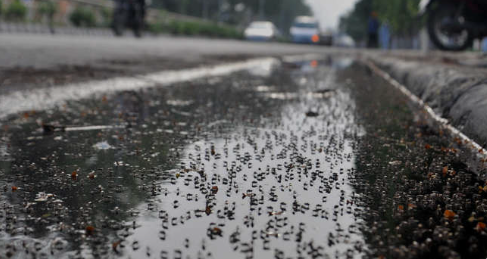A troubling health hazard has emerged outside Ruby Hall Hospital, where a pool of stagnant drainage water has accumulated near the main entrance under the Maha Metro Station. This stagnant water poses a significant risk to patients and visitors, serving as a breeding ground for disease-carrying mosquitoes, which could exacerbate the current rise in mosquito-borne illnesses such as malaria, dengue, and chikungunya in the city.
With the number of dengue cases in Pune climbing, the presence of this murky water is particularly alarming. Reports indicate a substantial uptick in these diseases, which is prompting urgent calls for effective mosquito control measures. The relationship between stagnant water and the proliferation of these diseases cannot be overstated, particularly in a city grappling with its public health challenges.
The stagnant water not only threatens the well-being of those seeking medical care but also increases the likelihood of waterborne infections, making it a critical issue for public health. Given Ruby Hall’s reputation as a leading medical facility, the juxtaposition of its healthcare services with this unsightly and hazardous condition raises serious concerns about patient safety and sanitation standards. In response to the situation, both the hospital administration and the Pune Municipal Corporation have been urged to take immediate action. This includes draining the stagnant water and implementing measures to prevent future accumulation. Such actions are essential to enhance sanitation around the hospital, safeguarding the health of patients, staff, and visitors alike.
Beyond the immediate health implications, this issue highlights broader concerns regarding urban infrastructure and sustainability. Proper drainage and waste management are essential components of a healthy urban environment, and failure to address these issues can lead to larger public health crises. Ensuring that healthcare facilities are surrounded by clean, safe environments is not just a matter of aesthetics; it is a critical aspect of public health policy. As Pune grapples with increasing cases of mosquito-borne diseases, it is imperative that authorities act swiftly to mitigate these risks, thereby reinforcing the importance of sustainable urban planning and public health preparedness.


